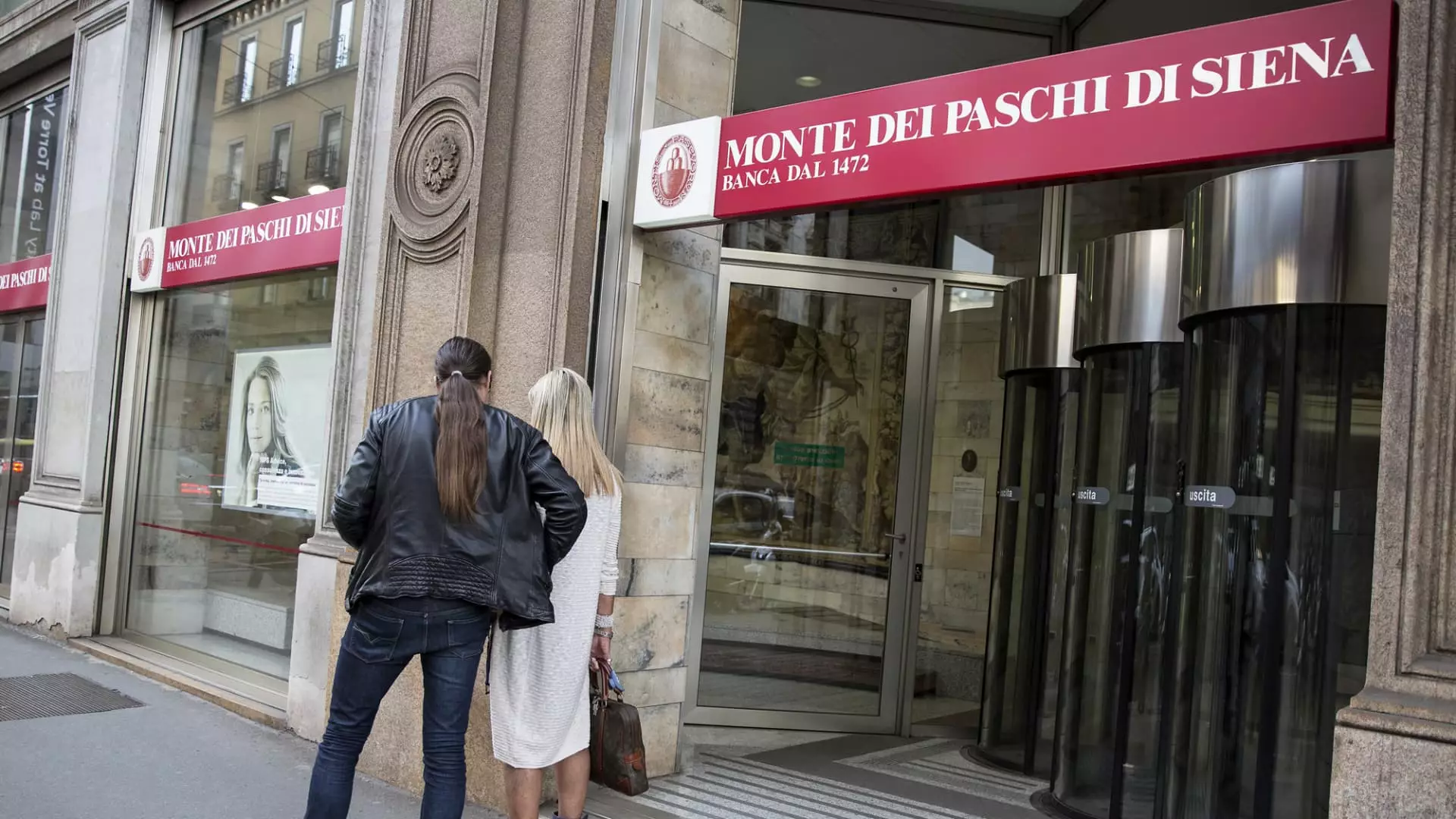Monte dei Paschi di Siena (MPS), established in 1472, is not just any bank but the oldest operating bank in the world. However, with age does not come wisdom; rather, it seems to have resulted in a stubborn attachment to an antiquated way of thinking. In an era where financial institutions must adapt robustly to survive market unpredictability, MPS’s steadfast intention to acquire Mediobanca for a hefty €13 billion ($14.3 billion) reflects more hubris than foresight. The decision is laden with risks driven by a misconstrued perception of consolidation’s power in a landscape already riddled with economic turbulence.
Ignoring the Warning Signs
The market is tumultuous, with companies like Klarna and 3i Group Plc reevaluating their positions and curtailing expansion due to instability. Yet, MPS stands firm, asserting that “the market situation will not impact our deal.” This is naive—if not outright reckless. In finance, timing is everything, and ignoring the broader market trends implies a lack of strategic foresight and, perhaps, desperation. MPS’s CEO Luigi Lovaglio may claim that the merger is about strength and agility, but denying the reality of the market suggests a potentially disastrous outcome for the institution.
Mediobanca’s vehement rejection of MPS’s offer as “destructive” speaks volumes. The investment bank, focused on wealth management, recognizes that its strategic path is incompatible with MPS’s struggles and previous bailout history. A merger necessitates philosophical compatibility, something MPS is sorely lacking.
The Delusion of Synergy
MPS believes that by acquiring Mediobanca, they will find some magical synergy that will elevate their status in the financial world. Analysts, however, exhibit significant skepticism. The lack of synergy seems not merely a concern but a certainty; two fundamentally different banking structures rarely align seamlessly, especially when one of them is fighting to regain its footing. Barclays has notably questioned MPS’s ability to create value through this acquisition, highlighting that the costs may outstrip any purported benefits. Consequently, shareholders could be left hanging in the balance, their investments precariously threatened under MPS’s dilapidated roof.
Moreover, while Lovaglio maintains optimism over the prospects of enhancing revenue diversification, he fails to address the staggering losses to shareholder value. Since the announcement of this deal in January, both banks have seen significant declines. Can Lovaglio genuinely believe that more uncertainty is the answer to volatility?
Political Implications and the Role of Government
Amidst this environment, the shadow of the Italian government looms ever larger. Having previously bailed out MPS in 2017, the Italian government now plays a role in the bank’s recovery, even as its stake dwindled to less than 12%. This historical relationship should serve as a cautionary tale for stakeholders. MPS’s high-handed approach not only invites scrutiny from investors but raises questions about governmental complicity in a bail-out dependent model. Is risking taxpayer euros for an outdated institution truly in the public interest?
In an age where financial accountability and sustainable practices are paramount, MPS’s ongoing bid appears out of touch with civic responsibility. MPS’s persistence raises alarming questions about the direction Italian banking is heading—why maintain a bank that seemingly fails to learn from history?
A Flicker of Hope Amid the Doldrums
While MPS pursues this reckless acquisition, some voices within the banking community suspect that a different approach is warranted—one emphasizing cautious growth over aggressive expansion. Monte dei Paschi may have been a towering figure in Italy’s financial history, but the insistence on clinging to the past—manifested in acquiring Mediobanca—could ultimately lead to further turmoil.
Lovaglio’s assertion that “the first phase of consolidation” is underway demonstrates a yearning for bygone days instead of a willingness to innovate. The reality is, the future of banking demands resilience, adaptability, and a willingness to embrace transformation instead of holding steadfastly to pride. This precarious balance underscores the urgent need for Italian banking institutions to evolve—not through ill-considered mergers, but through genuine innovation and adaptation. The clock is ticking, and the world is watching as Monte dei Paschi gambles on its survival at the crossroads of history.

